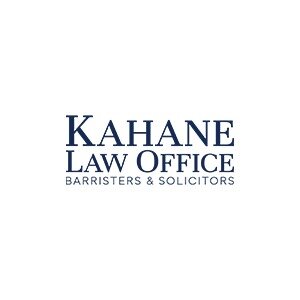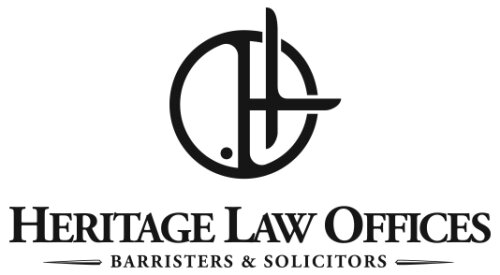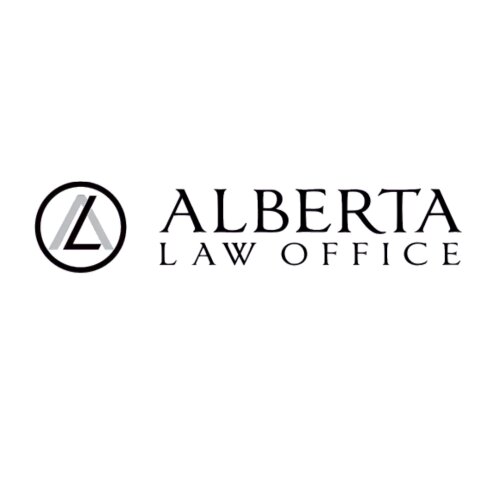Best Marriage Lawyers in Edmonton
Share your needs with us, get contacted by law firms.
Free. Takes 2 min.
Free Guide to Hiring a Family Lawyer
List of the best lawyers in Edmonton, Canada
About Marriage Law in Edmonton, Canada
Marriage in Edmonton, like the rest of Canada, is regulated by both federal and provincial laws. On the federal level, the Marriage (Prohibited Degrees) Act and the Divorce Act establish the rules for who can marry whom and when a marriage can be legally terminated, respectively. On a provincial level, Alberta's Marriage Act governs marriage procedures, including the issuance of marriage licenses and the solemnization of marriage.
Why You May Need a Lawyer
While it is possible to get married and even facilitate a divorce without the help of a lawyer, legal assistance can be invaluable in certain situations. If you are considering a prenuptial agreement, a lawyer can help to ensure this is done fairly and legally. Additionally, during a divorce, a lawyer can help navigate issues like property division, spousal support, and child custody. It's crucial to seek out a lawyer's expertise if your marriage involves complex legal issues or disputes.
Local Laws Overview
In Edmonton, one must apply for a Marriage License in person, together with the fiance(e) at any private registry agent in Alberta. The Marriage Act in Alberta also outlines the age of consent for marriage, which is 18 years, or 16 years with parental consent. It is also mandatory for a Marital Status Search to be done during the application process for the marriage license. When it comes to divorce, Edmonton follows the federal Divorce Act, which outlines the grounds for divorce and how property and debts are split.
Frequently Asked Questions
1. What is the legal age for marriage in Edmonton?
The legal age to marry without parental consent in Edmonton, Canada is 18. If an individual is 16 or 17, they can marry with parental consent.
2. Can I get married anywhere in Alberta with an Edmonton marriage license?
Yes, an Edmonton-issued marriage license is valid throughout Alberta, provided the marriage ceremony takes place within three months of the license being issued.
3. Is a prenuptial agreement legally enforceable in Edmonton?
Generally, prenuptial agreements are enforceable in Edmonton, as long as they are in adherence with Alberta's Matrimonial Property Act and are completed voluntarily, with full disclosure of each party’s financial situation.
4. How do I file for divorce in Edmonton?
Filing for divorce in Edmonton involves submitting a Statement of Claim for Divorce to the Court of Queen's Bench of Alberta. It is best to seek legal advice to know how to proceed, especially if children, property, or large sums of money are involved.
5. Do I have to live in Edmonton to file for a divorce there?
No, but either you or your spouse need to have lived in the province of Alberta for at least one year immediately before the filing of the divorce paperwork.
Additional Resources
The Alberta Courts and Alberta Justice websites provide a wealth of information on the marriage laws and processes in Edmonton. Individuals can also contact non-profit organizations such as Edmonton Community Legal Centre for advice or the Alberta Family Mediation Society for help with dispute resolution.
Next Steps
If you need legal assistance with marriage or divorce in Edmonton, consider reaching out to a lawyer specialized in family law. They can guide you through every step of the process, ensuring that all legal procedures are correctly followed, and helping you fully understand your rights and obligations.
Lawzana helps you find the best lawyers and law firms in Edmonton through a curated and pre-screened list of qualified legal professionals. Our platform offers rankings and detailed profiles of attorneys and law firms, allowing you to compare based on practice areas, including Marriage, experience, and client feedback.
Each profile includes a description of the firm's areas of practice, client reviews, team members and partners, year of establishment, spoken languages, office locations, contact information, social media presence, and any published articles or resources. Most firms on our platform speak English and are experienced in both local and international legal matters.
Get a quote from top-rated law firms in Edmonton, Canada — quickly, securely, and without unnecessary hassle.
Disclaimer:
The information provided on this page is for general informational purposes only and does not constitute legal advice. While we strive to ensure the accuracy and relevance of the content, legal information may change over time, and interpretations of the law can vary. You should always consult with a qualified legal professional for advice specific to your situation.
We disclaim all liability for actions taken or not taken based on the content of this page. If you believe any information is incorrect or outdated, please contact us, and we will review and update it where appropriate.











